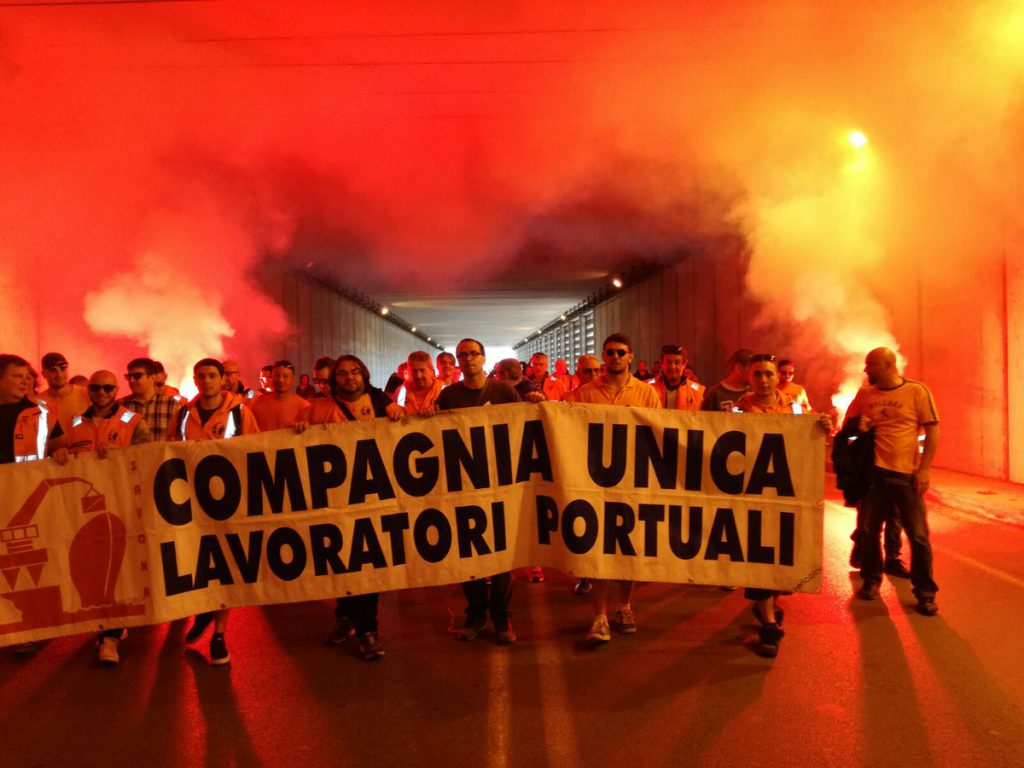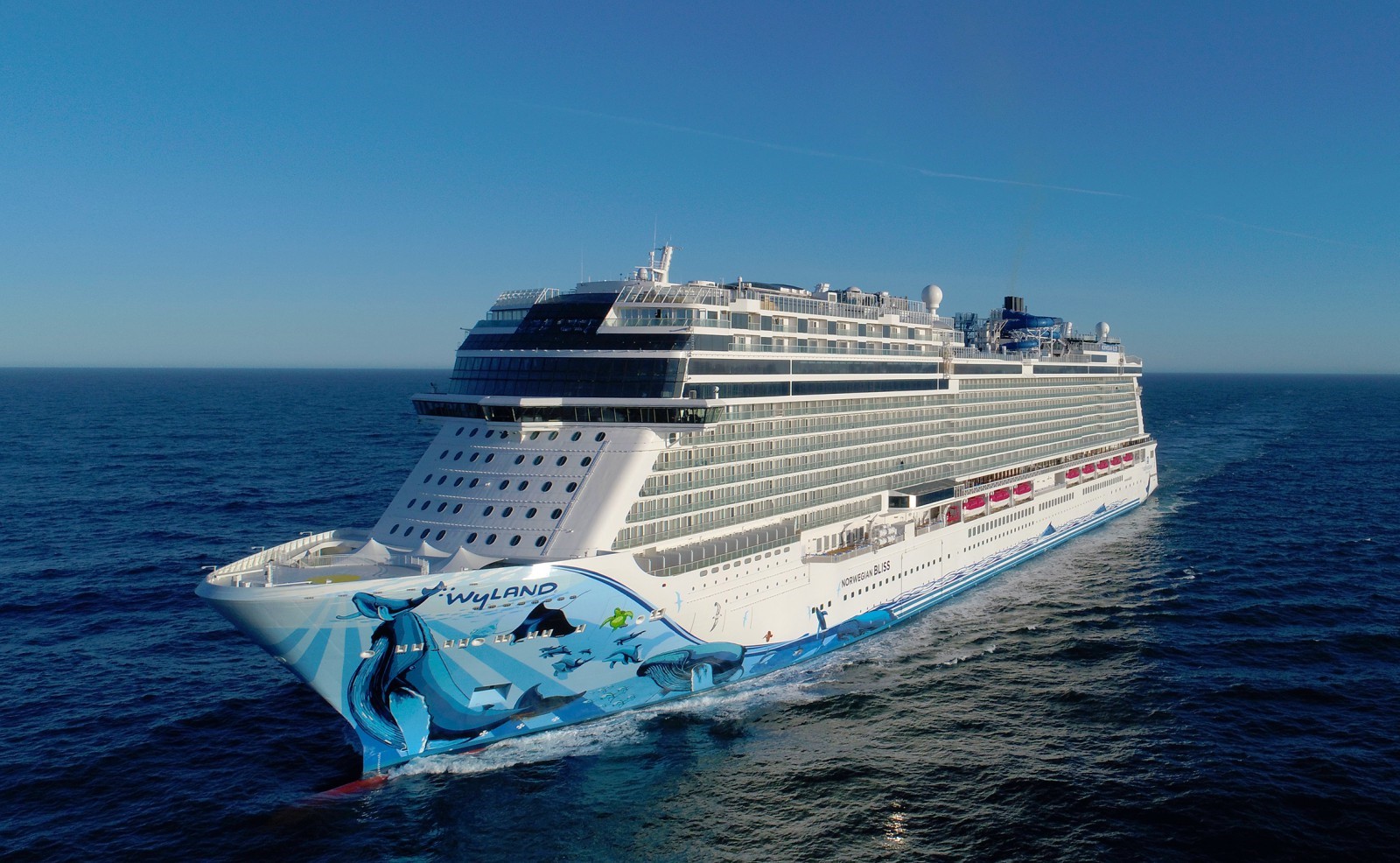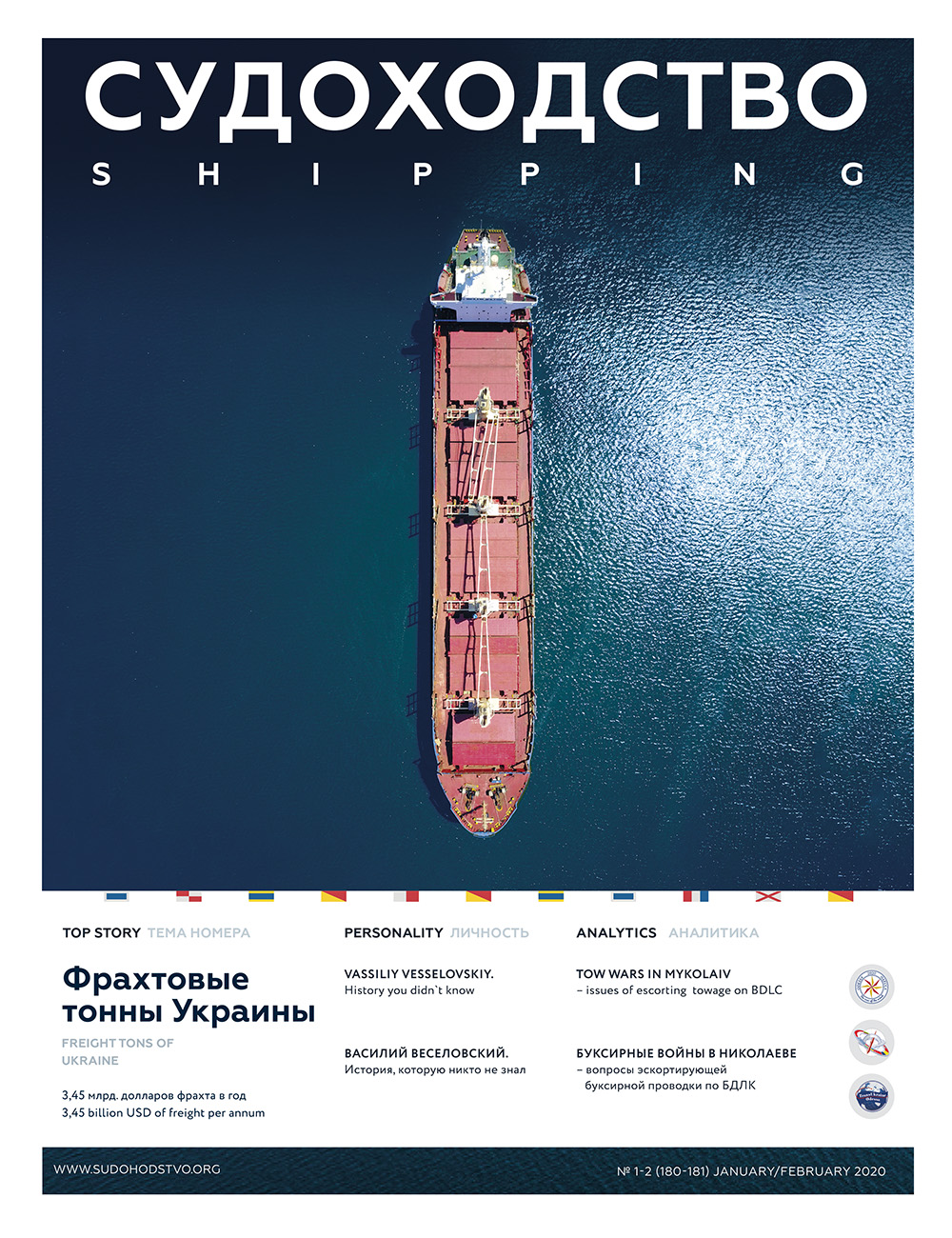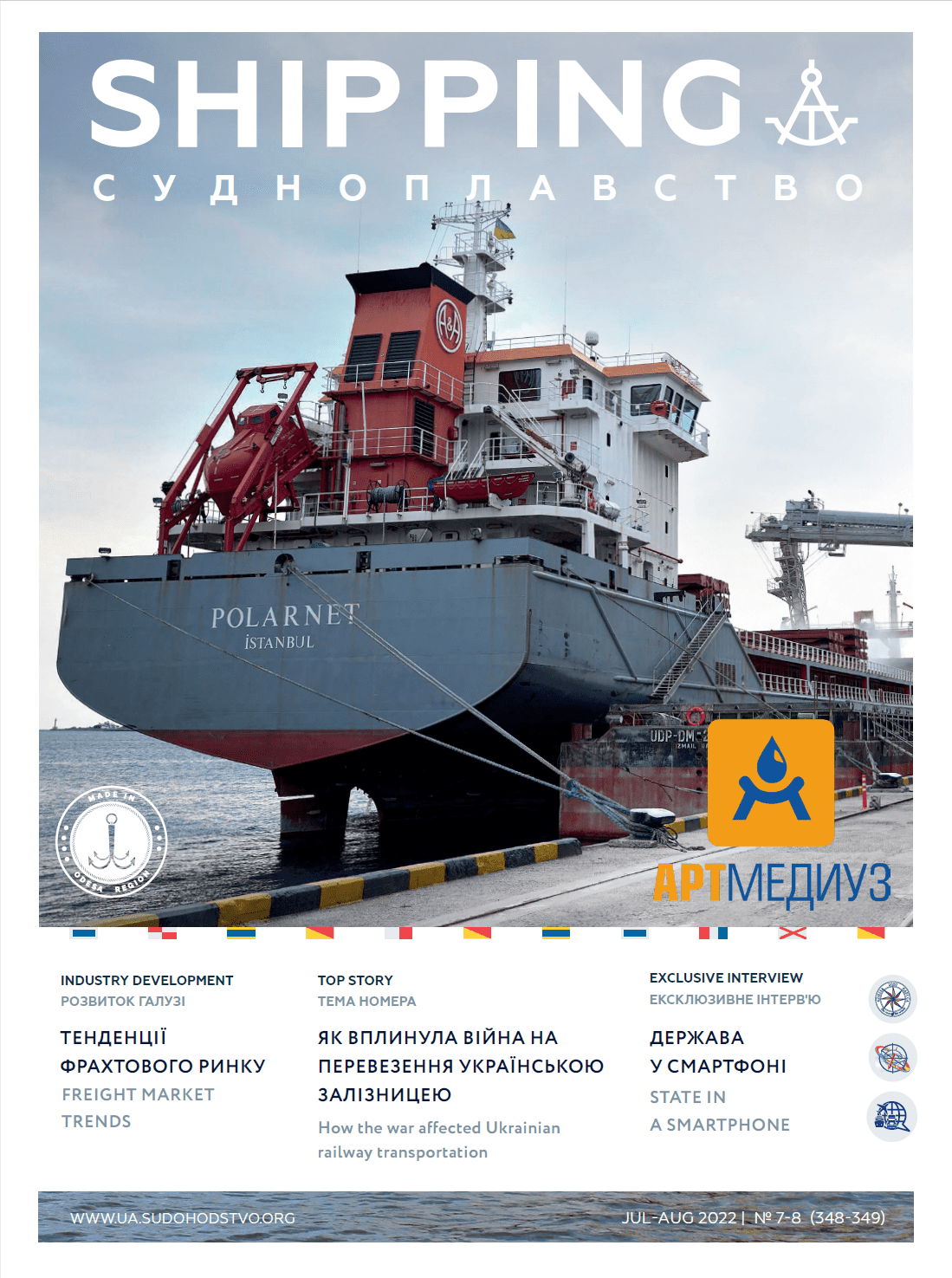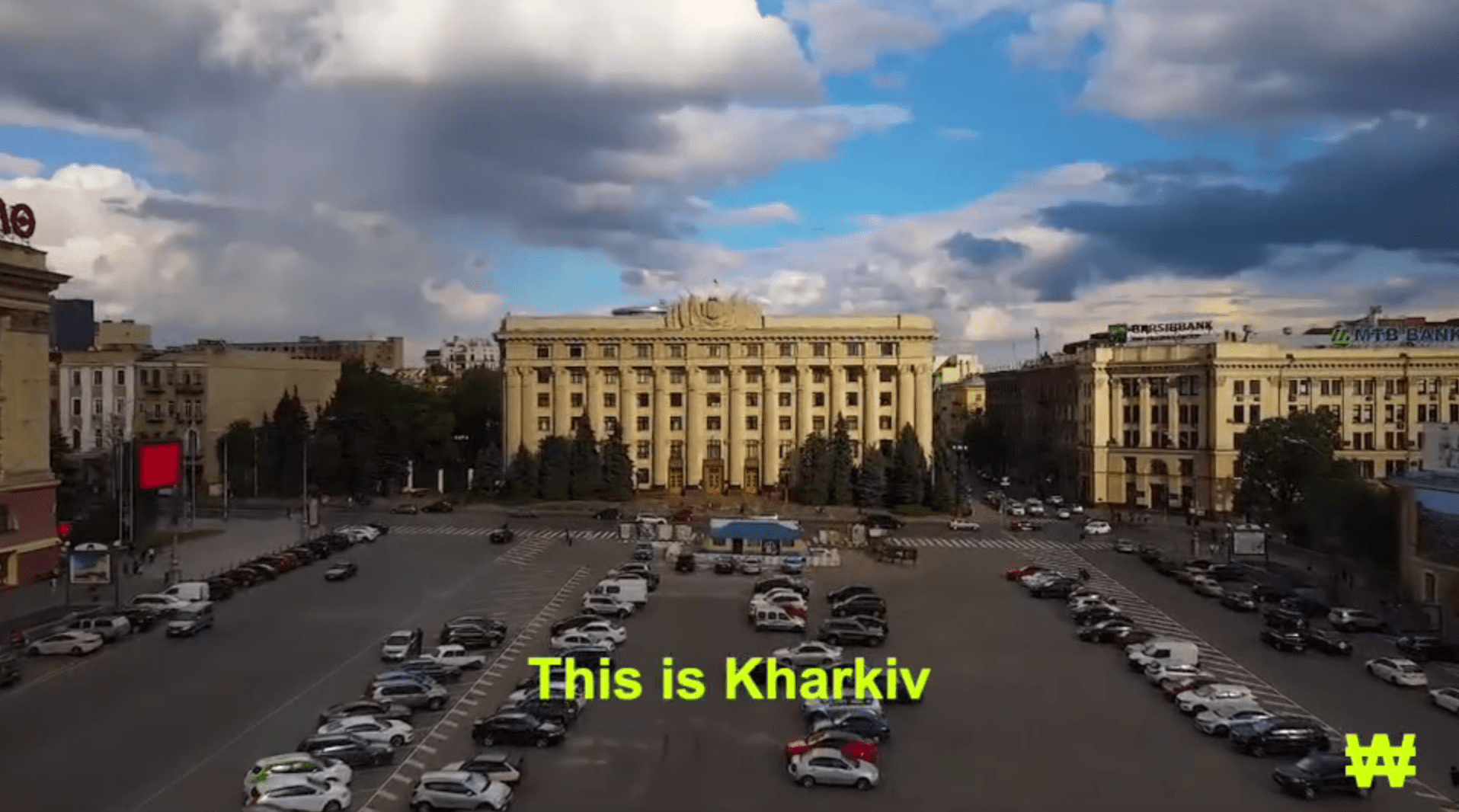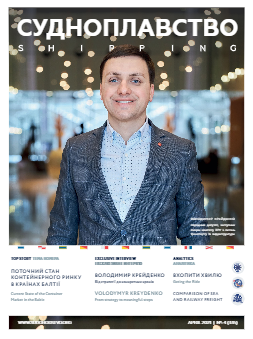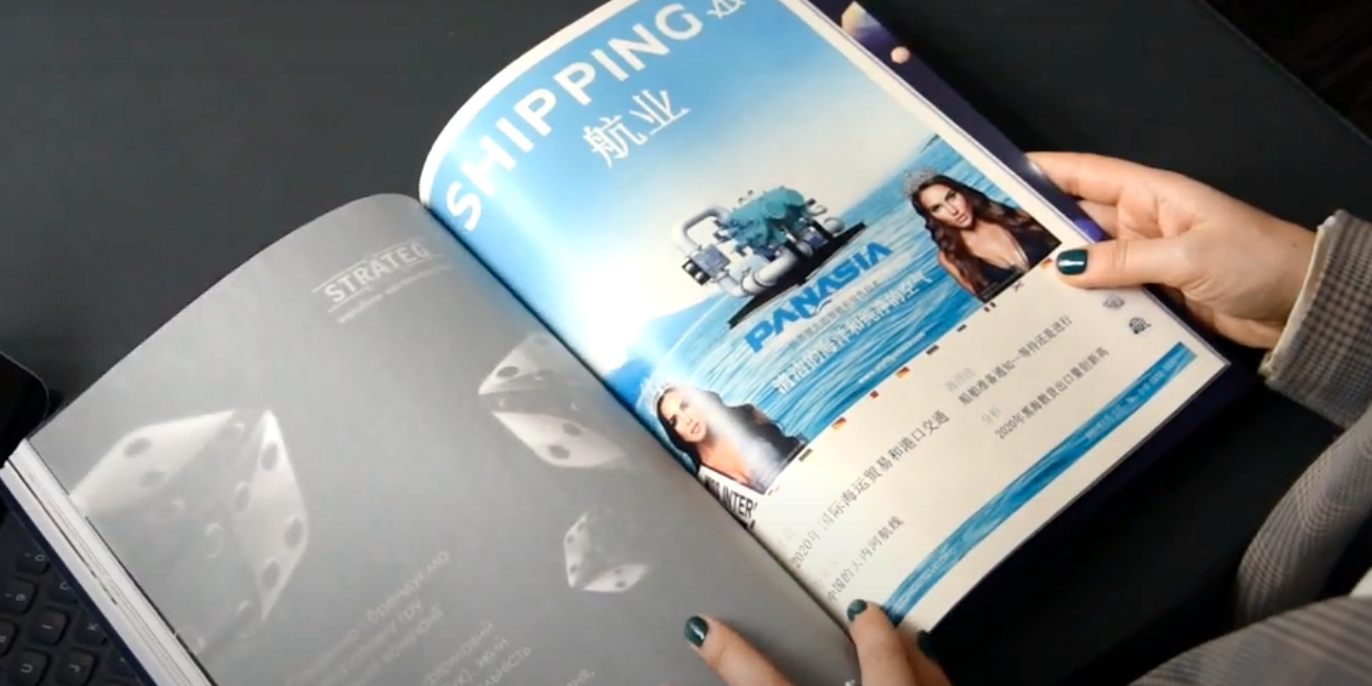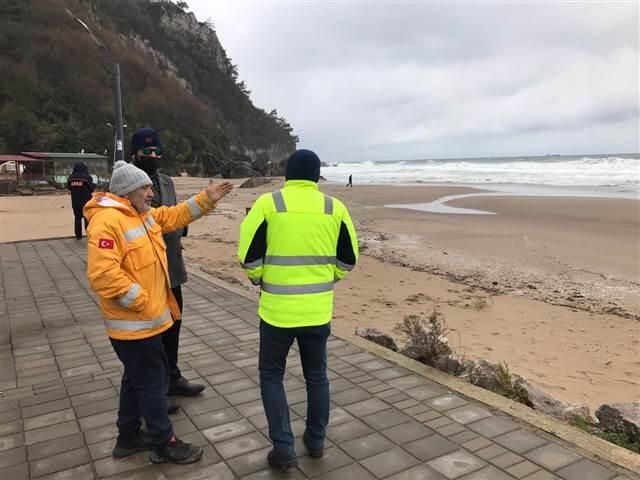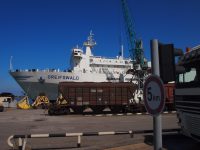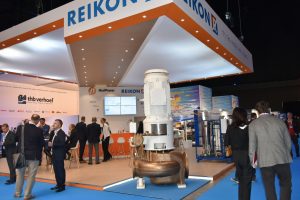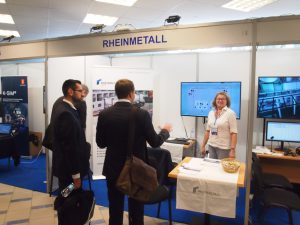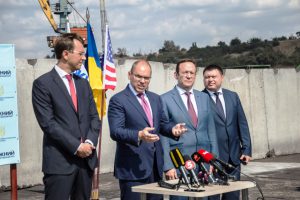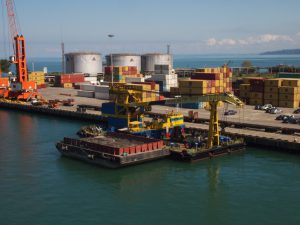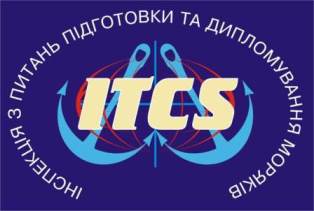 (from the issue №4, 148, November) What are the expectations of the Manila Amendments and what influence will the new edition of the STCW Convention carry on the work of the sailors in Ukraine, which, according to the estimates of the analysts, lies the sixth place among the countries – suppliers of maritime labor? All this is in the expert article, prepared by the Inspectorate for Training and Certification of Seafarers of the Ministry of Infrastructure of Ukraine.
(from the issue №4, 148, November) What are the expectations of the Manila Amendments and what influence will the new edition of the STCW Convention carry on the work of the sailors in Ukraine, which, according to the estimates of the analysts, lies the sixth place among the countries – suppliers of maritime labor? All this is in the expert article, prepared by the Inspectorate for Training and Certification of Seafarers of the Ministry of Infrastructure of Ukraine.
Ukraine is a member of the International Maritime Organization (ІMO), and has signed the main international regulations on maritime safety, taken in the framework of ІMO, including the International Convention on Training, Certification for Seafarers and Watchkeeping 1978, with the amendments.
According to the results of the five year labor market research in the global shipping (Manpower Report), Ukrainian number of seafarers amounts 234,923 people, but really 69,000 sailors, including 39,000 officers were delivered on the fleet in 2015. In fact, we are talking about the number of jobs that were occupied by Ukrainian sailors. According to the authors of Manpower Report 2016, Ukraine today takes pride in sixth place among the countries – suppliers of maritime labor.
Ukraine acceded to the Standards of Training, Certification and Watchkeeping for Seafarers 1978 (STCW) by approving the Law of Ukraine dated November 1, 1996 № 464/96-BP. The high professionalism of Ukrainian sailors, level of theoretical and practical training gave Ukraine an opportunity to take a worthy place in the international labor market and enter in the «White List» of the International Maritime Organization.
The Convention1978 entered into force on 28 April 1984. Since then, amendments to it were adopted in 1991, 1994, 1995, 1997, 1998, 2004, 2006 and 2010. Amendments of 2010 (Manila Amendments) to the Convention and the Code have been approved by resolutions of the 1 and 2 Conferences of the Parties to the Convention, which was held in Manila (Philippines) from 21 to 25 June 2010. Manila Amendments entered into force in Ukraine since the publication of the official translation (6 April 2012), in accordance with Article 57 of the Constitution of Ukraine.
Manila Amendments clarify the required standards, especially in the light of new technologies, introduce new requirements and methodology for training and certification and specify the requirements for hours of work and rest of seafarers, preventions of drug and alcohol abuse, and also the rules of the workability for health reasons.
From 01.07.2011 the amendments to the STCW Convention and Code were accepted, and since 01.01.2012 entered into force. From 01.07.2013 all approved training programs for seafarers in all respects comply with the requirements of the revised Convention and Code.
Each Party have to compare the standards of competence which it puts forward to the applicants for certificates issued before 01/01/2017, with those specified for the appropriate certificate in the new version of the Code, and to determine the need for holders of these diplomas of passage of appropriate courses of retraining and advanced training, or competency assessment. After 1 January 2014 seafarers should be trained in accordance with the new provisions. 01/01/2017 the period of realization ends, and then, in February 2017, all actively working sailors must meet all the requirements of the Convention, as amended, and have a valid STCW certificate that covers all the functions performed by them on board.
In accordance with Regulation I / 2 of STCW Convention, certificates are issued only by the Administration after checking the authenticity and validity of any necessary documentary evidence. Specialist Certificate, issued in accordance with the provisions of regulations V / 1-1 (oil tankers and chemical tankers) and V / 1-2 (gas tankers) is given only by the Administration to captains and command squad.
Each Party undertakes to keep a register of all certificates and captains confirmations of command squad representatives and, depending on the circumstances, rating workers which: are issued; ended or renewed; the effect of which is suspended; which have been canceled, lost or destroyed; as well as the issuance of preferential permits. In addition, each Party shall provide information on the status of such professional certificates, endorsements and dispensations to other Parties and companies sending requests to verify the authenticity and validity of the certificates submitted by the sailors, who are seeking recognition of their diplomas in accordance with regulations I / 10 or seagoing service.
Also, there must be a free access to information on diplomas, certificates and evidence, being a necessary norm for the recognition of these documents by other maritime administrations. Inspection on Training and Certification of Seafarers is bringing into action the measures for the implementation of the «Open site for Ukrainian sailors’ documents checking», which will start to work at the end of 2016.
According to the rule I / 3 of STCW Convention, the boundaries of coastal navigation must be indicated in the confirmation of the Diploma, which, given the evaluation of the different Parties of different quantities of these borders, puts the sailors of Ukraine at a disadvantage. Ukraine defines coastal sailing at a distance of up to 20 miles, which is significantly less than in other states. For example: US – 200 miles, UK – 150. On the labor market in the coastal navigation there is visible «unfavorableness» of Ukrainian documents. The question of the revision of coastal navigation border of Ukraine can open an additional labor market for Ukrainian sailors.
By Regulation I / 6, each Party shall ensure:
- Management, leadership and supervision of the training and assessment of seafarers, as required by the Convention, in accordance with the provisions of section A-I / 6 STCW Code;
- The required qualifications of persons responsible for the training and assessment of competence of seafarers, as required by the Convention, with respect to the type and level of training or assessment – in accordance with the provisions of section A-I / 6 STCW Code.
According to the provisions of section AI / 8, STCW Code, all training activities, competency assessment, certification (including the registration of medical certificates, confirmation and extension of the document), which is carried out by authorized governmental bodies or organizations, is held under constant surveillance by means of system of quality standards – in order to ensure the achievement of defined objectives, including those concerning the qualifications of instructors and examiners.
Each Party shall establish standards of medical availability for seafarers and procedures for the issuance of medical certificates, in accordance with the provisions of this rule and section A-I / 9, STCW Code. The sailor, having a professional diploma / certificate specialist, issued under the provisions of the Convention and working on a vessel must also have a valid medical certificate issued in accordance with the provisions of this rule and section A-I / 9 STCW Code. Medical certificates shall remain valid for a maximum period (two years), except in cases where the age of a seafarer is less than 18 years (where as the maximum period of validity is one year).
In fact, in Ukraine medical certificates have validity period of 1 year.
Each Administration, according to the provisions of section A-I / 14, shall lay upon the company the responsibility regarding the appointment of seamen in accordance with the provisions of this Convention.
To ensure the timely implementation of the international requirements by Ukraine there was also approved and improved a number of national regulations:
- Regulations on the ranks of command squad of ships and the order of their assignment, approved by order of the Ministry of Infrastructure from 07.08.2013 №567;
- Order of the Ministry of Infrastructure of Ukraine of 18.10.2013 №811 «On approval of sample documents of command squad and crew, testifying to the appropriate qualifications for the position of the ship and identifying their owners»;
- The procedure for issuing qualifications for command squad and crew, approved by order of the Ministry of Infrastructure from 18.10.2013 №812;
- The procedure for confirming qualifications for command squad and crew, approved by order of the Ministry of Infrastructure from 18.10.2013 №813;
- Regulations on working time and rest periods of crew of Maritime and River Transport of Ukraine, approved by Order of the Ministry of Infrastructure of Ukraine 29.02.2012 №135;
- Technical description of the forms of seafarers documents, approved by order of the Ministry of Transport and Communications of Ukraine from 26.11.2004 №1046;
- Order of the Ministry of Infrastructure of Ukraine of 07.10.2014 №491 «On approval of requirements for the gym at and other equipment intended for training and testing ofcommand squad and crew.»
And also in the work – and are entitled to updates:
- Operation of the state qualifying commissions, approved by order of the Ministry of Infrastructure from 23.05.2007 №377;
- The order of suspension of diplomas confirmation and exception review of competence of command squad, approved by order of the Ministry of Transport of Ukraine from 28.08.03 №672;
- The order of filling and issuing of evidence that attest the recognition of diplomas, approved by order of the Ministry of Transport of Ukraine of 30.10.2002 p. №766;
- The rules for determining medical availability of persons to work on ships, adopted by the Ministry of Health of Ukraine Order of 19.11.1996 №347 (as amended by Order of 08.10.09 №723).
After the entry into force of the Manila Amendments there appeared a number of issues related to seafarers’ documents, so the role of crewing companies in their decision is very significant. Not all sailors are fully informed concerning the new requirements for marine instruments, so the companies need to keep track of periods of validity of sailors documents.
Regarding the documents of seamen of conventional specialties, as well as refrigeration mechanics, issued before 31.12.2016, they are requested to start the procedure of confirmation of qualification in the prescribed manner, with the exception of deckers and wipers. They exchange the documents automatically in the diploma-passport departments of the seaports. If the sailors of conventional specialties’ documents’ validity period ends, for example, in 2018, but the documents were issued according to old-style forms and do not meet the requirements of the STCW Convention, the seafarers should contact the diploma-passport departments of seaports and get the documents of the new sample (with the validity of the previous documents). This also applies to refrigeration mechanics.
The Mariners of not conventional specialties exchange the documents automatically in the diploma-passport departments of the seaports. The validity of these documents is not limited.
Conclusions
After the entry into force of the Manila Amendments, there is significant relief for seafarers, namely:
— The abolition of the examinations in the state qualifying commissions (SQC) for rating workers, qualifications of which are not a subject of the requirements of STCW Convention, which touches to 4000 sailors annually;
— Reducing of the number of training preparations over a period of professional activity of a sailor;
— The introduction of a remote computer testing of seafarers (first in addition to the examinations in the SQC, and in the future – instead of them) aims to significantly increase the level of objectivity in establishing the qualifications of seafarers;
— Introduction of electronic document between educational and training institutions, where the sailors get simulator training, by professional bodies issuing confirmations and certificates, by the State Register of documents of sailors of Ukraine, by remote testing system.
Pavel Bulanovich, Acting Chief Inspectorate for Training and Certification of Seafarers of Ministry of Infrastructure of Ukraine

